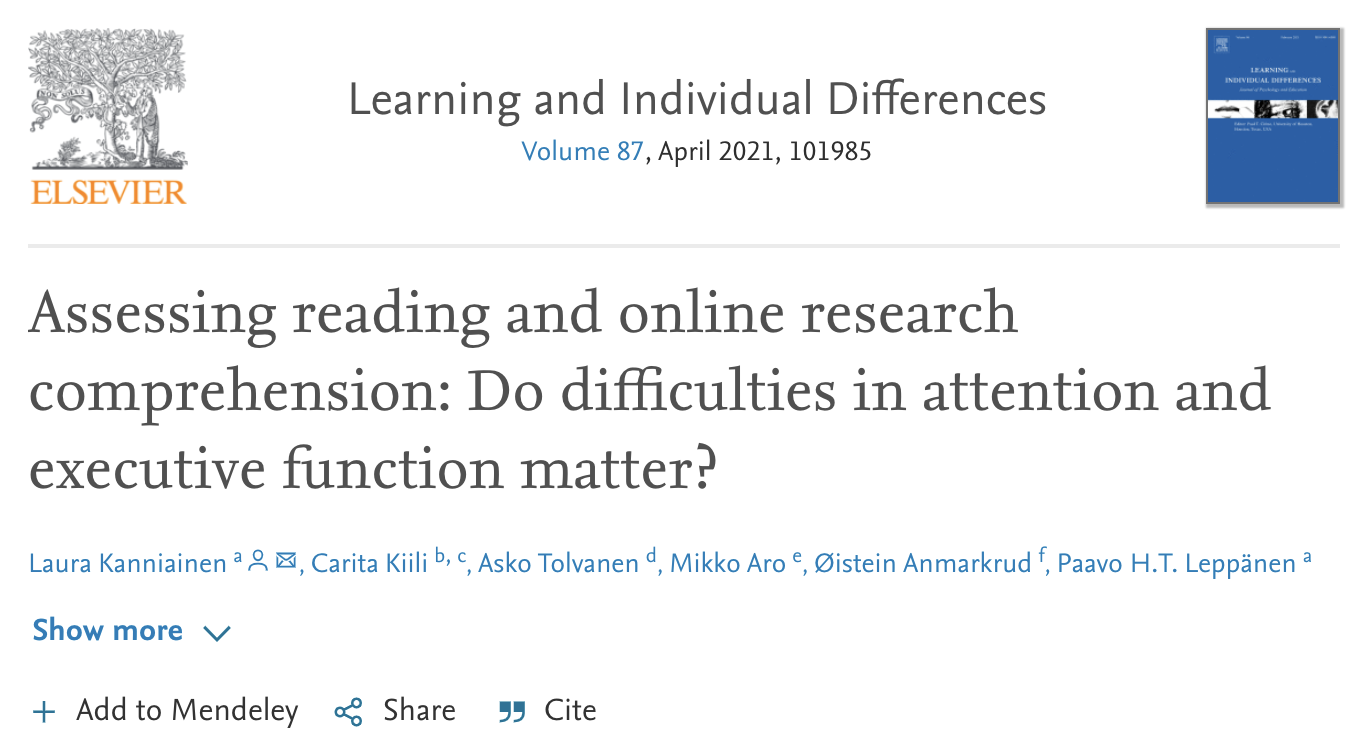Laura Kanniainen and colleagues examined how difficulties in attention and executive function contributed to sixth graders’ comprehension skills. Over 400 sixth graders conducted two different comprehension tasks: a traditional reading comprehension task (multiple choice) and an online research and comprehension task. In the latter task, students located online resources by using a search engine, and evaluated the credibility of two online resources. Next, students identified main ideas from four online resources and synthesized the ideas in a summary. Finally, they composed an email message to communicate their justified opinion.
In the study, teachers evaluated students’ difficulties in attention and executive function with a rating inventory. For students with these difficulties, the online research and comprehension task was more challenging than the reading comprehension task. After controlling for reading fluency, reading comprehension, and nonverbal reasoning, the difficulties in attention and executive function explained 4% of boys’ online research and comprehension performance and 9% of that for girls.
As far as we know, this is the first attempt to investigate how students with difficulties in attention and executive function manage to solve problems with online information. New knowledge can be used for planning instruction that takes better into account different learners.
This research was part of the eSeek project led by the Department of Psychology, University of Jyväskylä, and funded by the Academy of Finland. Read more from our recent, open-access article.

